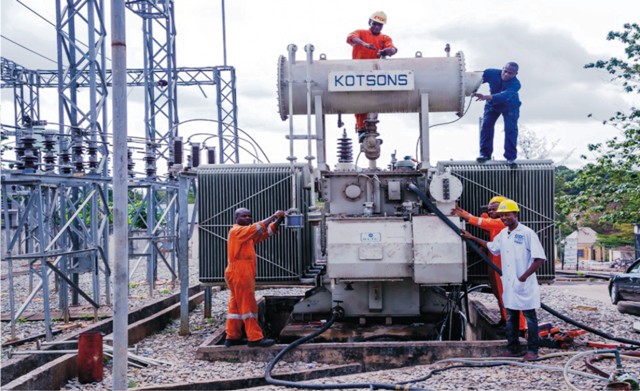Oil & Energy
Oil Exports: Nigeria Cuts Selling Prices To Lure Buyers

Nigeria has cut its official selling prices of a basket of May-loading crude oil grades in a bid to attract buyers.
The nation’s crude oil has had a difficult time clearing in recent weeks, as offer levels were too high to attract buying interest from European refineries.
Nigeria released its official selling prices for May, showing a decrease for major grades, including Bonny Light and Qua Iboe, Forcados and Escravos, by around 20 to 25 cents compared with April, according to Reuters.
Buyers had been largely reluctant to pick up cargoes of May-loading cargoes offered at and above a premium of $2 compared to dated Brent.
One trader was quoted as saying that backwardation and low refining margins had reduced the appeal of Nigerian crude for European buyers.
Turkey’s Tupras has issued a tender for three cargoes of Nigerian for loading between May 25 and June 10 but had bought at least one, a cargo of Nigerian Jones Creek.
Uruguay’s state-owned oil company, ANCAP, has issued a buy tender for July 1-6 arrival.
Angolan crude was already selling rapidly and at sky-high prices after the preliminary loading programme for June showed the lowest volumes in over a decade.
Angolan crude oil exports are set to plunge to 38 cargoes due to a shutdown for maintenance at the Saturno field during June and issues affecting the Girassol stream.
The state oil company, Sonangol, which holds 15 of the June cargoes, was said to have almost sold out its spot cargoes, in an extremely quick turnaround relative to previous months.
Demand for the scarcer supply sent differentials far higher, as U.S. sanctions on comparable Iranian and Venezuelan crudes added to the relative scarcity of Angolan to widen a gap in the market for heavy sweet crude.
Sonangol’s three cargoes of Dalia were heard to have sold out at record highs around a $2 premium compared with dated Brent and June’s sole cargo of Gimboa for around the same.
The state oil company’s only remaining cargo was of Saturno, which is being indicated at $1.80.
Oil & Energy
NERC, OYSERC Partner To Strengthen Regulation

Oil & Energy
NLC Faults FG’s 3trn Dept Payment To GenCos

Oil & Energy
PENGASSAN Rejects Presidential EO On Oil, Gas Revenue Remittance ……… Seeks PIA Review

-
Maritime10 hours ago
Customs Declares War Against Narcotics Baron At Idiroko Border
-
Maritime10 hours ago
Nigeria To Pilot Regional Fishing Vessels Register In Gulf Of Guinea —Oyetola
-
Maritime10 hours ago
NIMASA,NAF Boost Unmanned Aerial Surveillance For Maritime Security
-
City Crime7 hours ago
NCSU Hails Fubara Over 2025 New Telegraph Man Of The Year Award
-
Maritime10 hours ago
NIWA Collaborates ICPC TO Strengthen Integrity, Revenue
-
Maritime10 hours ago
NIMASA GETS NEW MARITIME GUARD COMMANDER,ADOKI
-

 Business10 hours ago
Business10 hours agoBOI Introduces Business Clinic
-

 Business10 hours ago
Business10 hours agoDangote signs $400 mln equipment deal with China’s XCMG to speed up refinery expansion

